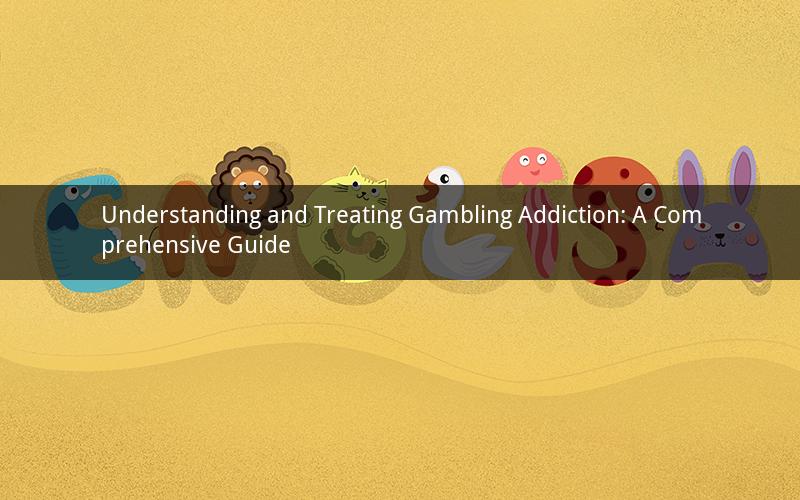
Introduction
Gambling addiction, also known as problem gambling, is a serious issue affecting millions of people worldwide. It is characterized by an uncontrollable urge to gamble, despite the negative consequences it may have on one's life. In this article, we will explore the various aspects of gambling addiction, including its causes, symptoms, and effective treatment methods. By understanding the intricacies of this addiction, individuals can take the necessary steps to overcome it and lead a healthier, more fulfilling life.
1. Understanding Gambling Addiction
Gambling addiction is a disorder that affects the brain's reward system, leading to compulsive gambling behavior. It is essential to differentiate between harmless gambling and problematic gambling. Problematic gambling refers to any gambling behavior that causes distress or harm to the individual or others. Some common signs of gambling addiction include:
- Continuously chasing losses
- Needing to gamble with increasing amounts of money
- Feeling restless or irritable when not gambling
- Lying to family and friends about gambling activities
- Neglecting responsibilities due to gambling
2. Causes of Gambling Addiction
Several factors can contribute to the development of gambling addiction, including:
- Genetic predisposition: Some individuals may be genetically more susceptible to developing gambling addiction.
- Environmental influences: Exposure to gambling opportunities, such as casinos or online gambling sites, can increase the risk of addiction.
- Psychological factors: Individuals with certain personality traits, such as impulsivity or a need for excitement, may be more prone to developing gambling addiction.
- Social factors: Peer pressure, family dynamics, and stress can also contribute to the development of gambling addiction.
3. Symptoms of Gambling Addiction
Gambling addiction can manifest in various ways, and its symptoms may vary from person to person. Common symptoms include:
- Financial problems: Borrowing money, selling personal belongings, or taking out loans to fund gambling activities.
- Emotional distress: Experiencing anxiety, depression, or mood swings related to gambling.
- Legal issues: Engaging in illegal activities to support gambling habits, such as theft or fraud.
- Relationship problems: Straining relationships with family, friends, or romantic partners due to gambling-related behavior.
4. Treatment for Gambling Addiction
Treating gambling addiction requires a comprehensive approach, combining various therapeutic methods. Some effective treatment options include:
- Cognitive-behavioral therapy (CBT): This type of therapy helps individuals identify and change negative thought patterns and behaviors associated with gambling.
- Family therapy: Involving family members in the treatment process can help address underlying issues and improve communication.
- Support groups: Joining a support group, such as Gamblers Anonymous, can provide individuals with a sense of community and support.
- Medication: In some cases, medications may be prescribed to help manage symptoms of depression or anxiety associated with gambling addiction.
5. Preventing Relapse
Overcoming gambling addiction is a challenging process, and relapse is a common concern. To prevent relapse, individuals should:
- Develop a relapse prevention plan: Identify potential triggers and develop coping strategies to avoid relapse.
- Stay connected with support systems: Maintain relationships with friends, family, and support groups to provide ongoing support.
- Practice self-care: Engage in healthy activities, such as exercise, meditation, and hobbies, to reduce stress and promote well-being.
- Seek professional help: If relapse occurs, seek help from a therapist or counselor to address underlying issues and develop new coping strategies.
Frequently Asked Questions
1. What is the difference between gambling and problem gambling?
Gambling is a form of entertainment, whereas problem gambling refers to any gambling behavior that causes distress or harm to the individual or others. Problem gambling can lead to financial, emotional, and legal problems.
2. Can gambling addiction be cured?
Gambling addiction is a chronic condition, but it can be managed and treated effectively. With proper treatment and support, individuals can overcome their addiction and lead a healthier life.
3. Are there any medications available to treat gambling addiction?
Medications may be prescribed to help manage symptoms of depression or anxiety associated with gambling addiction. However, there is no specific medication for treating gambling addiction itself.
4. Can family therapy help in treating gambling addiction?
Yes, family therapy can be an effective component of treating gambling addiction. It helps address underlying issues and improves communication between family members, which can contribute to a better recovery process.
5. How can I support a loved one with a gambling addiction?
Supporting a loved one with a gambling addiction involves understanding the addiction, being patient, and providing a non-judgmental environment. Encourage them to seek professional help and offer to accompany them to therapy sessions or support groups.